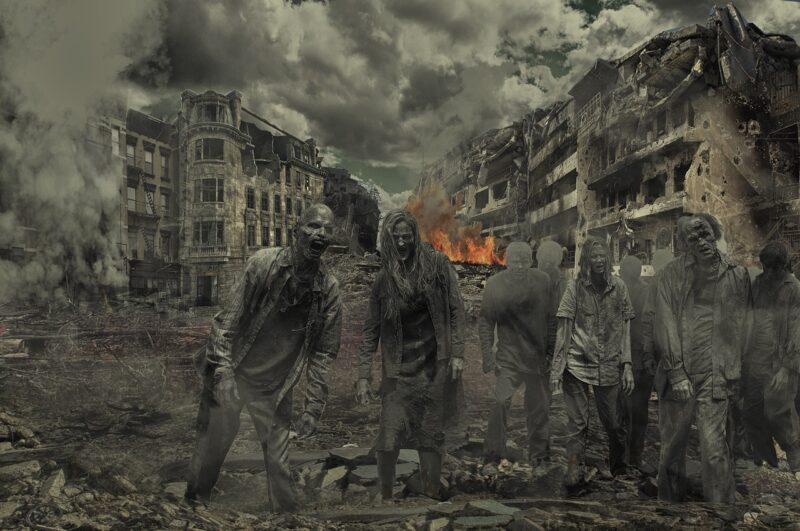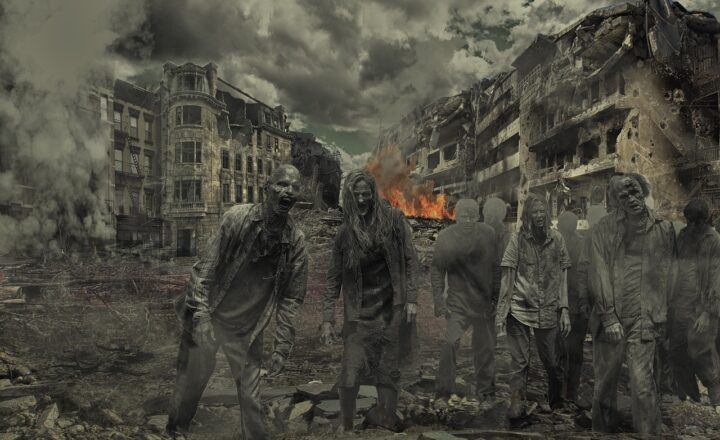The Evolution of Zombies in Pop Culture: From Slow Walkers to Fast Runners
November 18, 2024

The concept of the zombie has firmly infiltrated contemporary pop culture, evolving from the traditional slow, shambling undead to fast, intelligent monsters. Zombies now encapsulate a fascinating mix of horror, social commentary, and entertainment that resonates across various media formats. From films and television shows to video games and literature, the portrayal of zombies has changed dramatically over the decades. This article explores this evolution, diving into the origins of zombie folklore, significant cultural impacts, and what the future might hold for these undead creatures in entertainment.
1. The Origins: Haitian Vodou and Folklore
Zombies originally originate from Haitian Vodou traditions. The word ‘zombi’ signifies a corpse that has been revived by magical means, often used by a sorcerer to perform tasks. According to Haitian folklore, these zombies are not the mindless flesh-eaters we see today but rather a revival of the dead intended to serve others. This idea reflects fears around slavery, control, and the loss of autonomy.
While the notion of the zombie existed in the Caribbean long before films popularized them, Hollywood’s interpretation is what transformed the zombie into the cultural icon we know today.
2. The Birth of Zombie Film: Night of the Living Dead
In 1968, George A. Romero’s film Night of the Living Dead revolutionized the depiction of zombies in popular culture. The film introduced the idea of the mindless undead craving human flesh, establishing many of the tropes that dominate zombie narratives to this day.
Romero’s zombies were slow, menacing, and almost unintentionally reflective of societal issues, touching on themes of racism, consumerism, and the breakdown of societal order. This new vision of zombies paved the way for countless adaptations and inspired a new generation of filmmakers to explore zombie lore.
3. Fast Zombies: Changing the Game
By the 21st century, a new breed of zombies emerged, characterized by their speed and agility. Films like 28 Days Later (2002) introduced the concept of the “infected”—humans fast-tracked into feral cannibals by a viral infection. This shift not only made zombies more terrifying but also added a sense of urgency to narratives.
This change coincided with an increase in post-apocalyptic storytelling in films, video games, and television, further pushing the boundaries of traditional zombie tales. The incorporation of fast zombies reflected a broader cultural trend towards more dynamic storytelling, mirroring anxieties about disease, societal collapse, and existential threats.
4. Zombies in Television: The Walking Dead and Beyond
The explosion of zombie-themed television shows significantly shaped the depiction of zombies in contemporary media. AMC’s The Walking Dead became a pop culture phenomenon, blending horror with complex character narratives and moral dilemmas. Here, zombies serve as a backdrop for human drama, allowing the exploration of relationships and survival in dire circumstances.
The series also highlights the inherent adaptability of the zombie trope, with varying portrayals that resonated more deeply with viewers compared to the traditional horror genre. As the series progressed, the zombies became emblematic of the characters’ fears and existential challenges, showcasing their role as more than just monstrous entities.
5. Video Games: A Playable Nightmare
The evolution of zombies also significantly impacted video gaming, leading to iconic franchises like Resident Evil and Left 4 Dead. These games gave players an interactive perspective of a zombie apocalypse, allowing them to navigate the challenges of survival while battling hordes of the undead.
With advancements in technology, the representation of zombies adapted further, utilizing cutting-edge graphics and dynamic storytelling to immerse players in rich, horrific narratives. The fear induced by facing fast and intelligent zombies created thrilling experiences in gameplay and storylines, making them a staple in gaming culture.
6. Zombies as Metaphors: Social Commentary
Beyond mere entertainment, zombies have increasingly represented various social issues. From anti-consumerism critiques in Dawn of the Dead (1978) to reflections on pandemics and societal collapse in modern narratives, the zombie serves as a mirror for contemporary fears and anxieties.
They embody the ominous aspects of humanity’s relationship with technology, disease, and even each other. This socio-political resonance has allowed zombies to maintain relevance in pop culture, adapting to current issues while providing thrilling stories that captivate audiences.
7. The Future of Zombies in Pop Culture
As we continue to navigate a world fraught with uncertainties, the portrayal of zombies is likely to evolve further. Emerging trends, such as exploration in virtual reality, reimagining classics through fresh lenses, and anthropomorphizing zombies, will contribute to expanding this enduring trope.
The intersection of zombies with various genres, from comedy in films like Shaun of the Dead to romantic narratives in Warm Bodies, showcases the potential for continued innovation in storytelling. With an ever-growing appetite for zombie lore, we can expect new interpretations to challenge our understanding of these creatures.
Conclusion
The evolution of zombies in pop culture reflects broader societal changes and cultural fears. From the origins in Haitian folklore to contemporary interpretations of fast and intelligent undead, zombies have maintained their position within the public imagination for decades. Whether as representations of societal collapse, commentary on modern living, or pure entertainment, these creatures will continue to serve as both a source of horror and reflection in the stories we love.
As zombie narratives expand in various media forms, it’s clear the undead will remain an essential fixture of pop culture, providing endless opportunities for storytelling, reflection, and, ultimately, understanding our humanity against the backdrop of the terrifying unknown.






